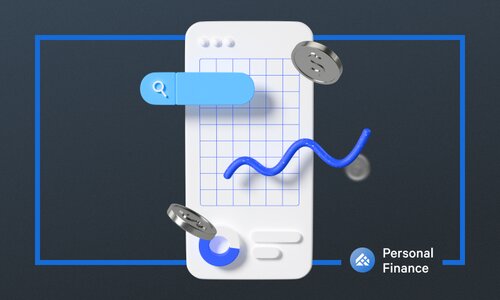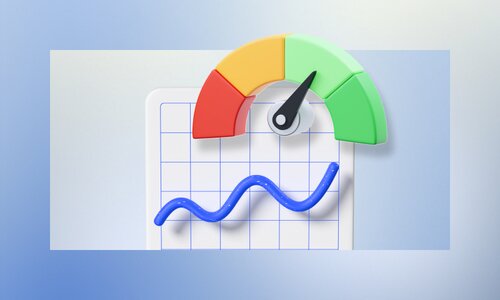Welcome to the ultimate car-buying dilemma, one that can significantly impact your personal finances for years to come.
While leasing offers lower monthly payments and the allure of driving the latest models, buying allows you to own your vehicle outright. Which option you choose will come down to your budget, your lifestyle, and your long-term financial goals. Here are some detailed guidelines for what to consider when deciding between leasing vs. buying a car.
What is the difference between buying and leasing a car?
Buying a car involves purchasing it outright or financing it through an auto loan. When you buy a car, you become the owner, and the car is yours to keep or sell. If you’ve taken out a car loan, you’ll make monthly loan payments to pay off the total cost of the vehicle over time, and once the loan balance is fully paid, you’ll own the car outright.
Leasing, on the other hand, means you’re renting the vehicle from a dealership or leasing company for a specified period, usually two to four years. During the lease term, you’ll make monthly payments to use the car, but you do not own the vehicle. When your lease ends, you’ll have the option to either return the car to the leasing company or take a buyout for its predetermined residual value.
What does it mean to lease a car?
Leasing can be an attractive option for many drivers who prefer the allure of driving a new vehicle every few years with lower monthly payments. It offers the taste of luxury without the commitment of long-term ownership. It’s essential, however, to understand what you’re signing up for and how your lease will differ from a traditional car purchase.
Advantages of leasing a car
Here are some benefits of leasing that make it a better option for some drivers.
- Potentially lower monthly payments: One of the most significant advantages of leasing a car is the potential for a lower monthly payment than purchasing outright. When you lease a car, you’re paying for the vehicle’s depreciation during the lease term rather than the full cost of the car. This can result in more affordable monthly payments.
- Access to newer models: With a lease, you can drive a brand-new vehicle with the latest features and technology. Since lease contracts typically only last a few years, you can consistently enjoy driving a new car without the long-term commitment of ownership. This can be appealing if you prefer the excitement and convenience of driving the latest models.
- Reduced maintenance costs: Most lease terms coincide with the manufacturer’s warranty period, meaning many of the repairs and maintenance services will be covered. This can help you avoid unexpected and costly repair bills that arise with older vehicles.
- Limited down payment: When you purchase a car with a traditional auto loan, you may need to make a significant down payment. This is not the case with lease agreements, where the upfront costs are smaller, making it a more affordable option in the short term.
- End of lease flexibility: At the end of the lease term, you have several options. You could choose to return the car to the dealer and get a new lease on a new vehicle. Or you can purchase the leased car at its residual value. If you no longer need a car, you can simply walk away with no further obligations. This flexibility allows you to explore different cars without the commitment of long-term ownership.
- Sales tax savings: In some regions, you may be able to pay sales tax only on the portion of the car’s value used during the lease term rather than on the full value of the car, leading to additional savings.
- Easy reselling: When you lease a car, you don’t have to worry about selling or trading in a used car at the end of the term. You can easily return the vehicle to the dealer with no additional hassle.
- Business deductions: If you use your car for business, the Internal Revenue Service (IRS) may permit you to deduct both the depreciation and the financing costs included in each monthly lease payment.
Disadvantages of leasing a car
There are also several cons of leasing to consider before you make your decision. These include:
- Limited ownership: When you lease a car, you don’t own the vehicle outright. Instead, you have a temporary right to use it for a specific period, after which you must return the car to the leasing company. Even if you opt to purchase the car outright at the end of your leasing period, you’ll still be making payments until it’s fully paid off.
- Mileage restrictions: Leasing agreements typically come with mileage limits, making it difficult if you drive extensively or have a long commute. Exceeding the set number of miles will result in additional fees.
- Wear and tear charges: Any damage considered excessive wear and tear, such as dings, dents, scratches, or worn-out tires, can result in additional charges at the end of your lease.
- Lack of customization: Since you don’t own the car, you’re limited in terms of personalizing or modifying it to suit your preferences. Making alterations to the leased vehicle may violate the lease agreement and result in penalties.
- Long-term cost: While you may have higher monthly payments with a financed car, leasing can be more expensive in the long term. Continuously leasing new cars means you always have monthly costs, whereas buying a car eventually leads to ownership, and your payments stop once the loan term ends.
- Early termination: Lease agreements are binding contracts with penalties for early termination. If your circumstances change or you want to leave the lease early, you may have to pay significant termination fees to break the lease.
- Higher auto insurance costs: You’ll pay more for car insurance with a lease since the leasing company typically requires you to have comprehensive and collision insurance, which increases your insurance premiums.
- Overestimating residual value: At the beginning of a lease, the leasing company sets an estimated residual value for the vehicle. If the actual market value of the car is lower than the estimated value at the end of the lease, you may pay more than expected when returning the car.
What does it mean to buy a car?
Buying a car comes with its own set of considerations and responsibilities. Unlike leasing, buying means you can own the vehicle, allowing you to customize and keep it for as long as you please. If you can’t afford to buy the vehicle outright, however, you may choose to finance it, that is, take out an auto loan that you pay off over time. Here’s what to think about before buying your next vehicle.
Advantages of buying a car
Buying a car offers several advantages that make it a favorable option for many people. These include:
- Ownership and equity: Buying a car makes you the owner of the vehicle, which means that as you make your car payments, you’re building equity in the vehicle. Ultimately, once you pay off your loan, you’ll own the car outright with no additional payments due.
- Flexibility and customization: Buying and owning a car means you can customize or modify it to your taste, adding accessories or upgrades to enhance its appearance or performance.
- No mileage restrictions: Unlike leasing, where you are typically limited to a specific mileage allowance, owning a car allows you to drive as much as you want without incurring additional costs.
- Long-term cost savings: Although buying a car may have higher upfront costs, owning the vehicle outright saves you from endless monthly lease payments. Over time, this can result in significant cost savings.
- Resale value: Depending on the make, model, and condition of your car, you may have the opportunity to retain a significant portion of its value when it comes time to sell or trade in. This resale value can provide a financial benefit down the road.
Disadvantages of buying a car
While buying a car has its benefits, it also comes with certain disadvantages that may make leasing more appealing. Here are some to consider:
- Potentially higher upfront costs: Purchasing a car may require a substantial upfront payment, including a down payment, taxes, registration fees, and other expenses.
- Depreciation: New vehicles lose value rapidly in the first few years of ownership. As a result, the car’s resale value may be considerably lower than the purchase price when it’s time to sell or trade in the vehicle.
- Repair and maintenance cost: As the owner, you are responsible for all repair and maintenance expenses. As the car ages, mechanical issues can arise, leading to potentially costly repairs. While some newer vehicles have warranties that cover certain repairs, older cars may require more frequent and expensive maintenance.
- Risk of negative equity: If you finance the car with a loan and the vehicle depreciates faster than you pay down the loan, you could find yourself in a negative equity situation. This means you owe more on the loan than the car is worth, making it challenging to sell or trade in the car without incurring additional costs.
- Limited access to newer models: Owning a car means you’re responsible for keeping it for the long haul. As a result, you may miss out on the opportunity to drive the latest models with the latest features and technology that come with leasing a new car every few years.
- You need good credit: To give you a car loan with a lower interest rate, lenders, such as banks and credit unions, may want to see a good credit score and high credit rating. If you have limited credit, you may have difficulty getting loans with good terms.
Make a smart financial choice with Arrived
Making smart financial choices and taking charge of your financial future is the key to building wealth over time and finding financial freedom. Small financial decisions, such as whether to finance vs. lease a car, can affect how much money you have left over at the end of the month to put toward your future.
At Arrived, we’re all about helping you build a better future. Our innovative solution offers an alternative to traditional home ownership, allowing you to tap into the wealth-building potential of real estate investing. With Arrived, you can invest in a diversified portfolio of residential properties across different markets, without the challenges and financial commitment of buying rental properties directly.
The opinions expressed in this article are for general informational purposes only and are not intended to provide specific advice or recommendations for any individual or on any specific security or investment product. The views reflected in the commentary are subject to change at any time without notice. View Arrived’s disclaimers.








